Matthew Reinhart's Blog, page 14
June 23, 2011
Weekly Beast: Bornean Flat-Headed Frog
The Bornean Flat-headed Frog (Barbourula kalimantanensis) is a species of toad in the Bombinatoridae family. It is the second frog known to have no lungs.
The frog, no more than 70 mm (2.8 in) long, lives in cold, clear, and fast rivers in remote areas of the rainforests of Kalimantan, the Indonesian part of the island of Borneo. Its natural habitats are rivers in tropical moist lowland forests. It is threatened by habitat loss from severe degradation of the river habitats by increased turbity and toxic metals used in mining and other unfortunate consequences of development on the island.


The frog, no more than 70 mm (2.8 in) long, lives in cold, clear, and fast rivers in remote areas of the rainforests of Kalimantan, the Indonesian part of the island of Borneo. Its natural habitats are rivers in tropical moist lowland forests. It is threatened by habitat loss from severe degradation of the river habitats by increased turbity and toxic metals used in mining and other unfortunate consequences of development on the island.

Published on June 23, 2011 06:40
Artist Watch: Walt Simonson
With the recent release of the Thor movie it's only right to give a big shout out to one of the artists who crafted some of the most memorable thunder god moments ever, the great Walt Simonson! Known for his energetic, graphic lines and compositions Simonson's style has always stood out among his peers. Not only is he a unique artist but (along with his equally great wife Louise Simonson) he's also an excellent storyteller and created numerous characters that have become staples of the super hero and sci fi genres. Both he and Louise continue to work in comics today and I met them both at the Big Apple Comic-Con!
~Nerd Will
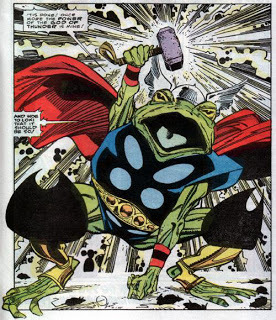

~Nerd Will

Published on June 23, 2011 06:32
June 20, 2011
What's Popped Up: We have a Winner!
Congratulations Tintan! You're the lucky winner of the Limited Edition 'Monsters & Dragons'! We'll contact you via email for more details!
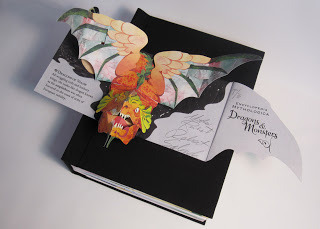


Published on June 20, 2011 06:41
Word of the Day: Doppelganger
Doppelganger \DOP-uhl-gang-uhr\ noun
1. A ghostly double or counterpart of a living person.
2. Alter ego; double.
Origin: Doppelganger is from the German doppel, "double" + Gänger, "goer'.


1. A ghostly double or counterpart of a living person.
2. Alter ego; double.
Origin: Doppelganger is from the German doppel, "double" + Gänger, "goer'.

Published on June 20, 2011 06:34
June 16, 2011
Word of the Day: Prolix
Prolix \pro-LIKS\ adjective
1. Extending to a great length; unnecessarily long; wordy.
2. Tending to speak or write at excessive length.
Origin:
Prolix is derived from Latin prolixus, "poured forth, overflowing, extended, long," from pro-, "forward" + liquere, "to be fluid".


1. Extending to a great length; unnecessarily long; wordy.
2. Tending to speak or write at excessive length.
Origin:
Prolix is derived from Latin prolixus, "poured forth, overflowing, extended, long," from pro-, "forward" + liquere, "to be fluid".

Published on June 16, 2011 06:52
June 15, 2011
History Lesson: Sukiyaki
On June 15th, 1963 a song named after a Japanese noodle dish became a #1 hit on the American pop charts. Lots of songs with food titles have made it big over the years like "American Pie", "Blueberry Hill", and "Lady Marmalade" to name a few . What is more significant about Sukiyaki was that it is the first and only song sung entirely in Japanese to do this. It was sung by Kyu Sakamoto and originally titled "Ue o Muite Arukō". This translates to "I Look Up When I Walk" and the song has nothing to do with the beef and noodle soup the English title was taken from.
When it became a hit in the U.S. Newsweek magazine observed that its renaming was like releasing "Moon River" in Japan under the title "Beef Stew."


When it became a hit in the U.S. Newsweek magazine observed that its renaming was like releasing "Moon River" in Japan under the title "Beef Stew."

Published on June 15, 2011 09:31
Artist Watch: Tomi Ungerer
Opening this weekend at the Eric Carle Museum of Picture Book Art is an exhibition of Tomi Ungerer's art work. Ungerer has illustrated many books for people of all ages. I love his use of colors to really make a mood for the reader and his line work is so tactile, you can feel the characters movements from it! If you can, definitely make a trip out to the Eric Carle Museum and check out Ungerer's work.
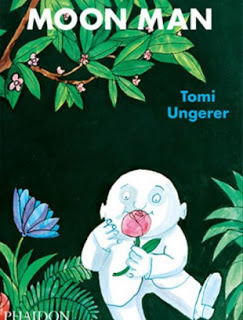
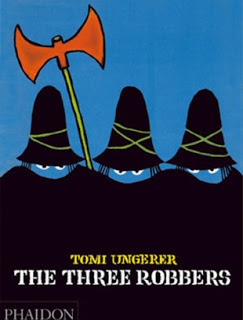
http://www.tomiungerer.com
http://www.carlemuseum.org/Ungerer
June 18 – October 9, 2011
The Eric Carle Museum of Picture Book Art
~Jess


http://www.tomiungerer.com
http://www.carlemuseum.org/Ungerer
June 18 – October 9, 2011
The Eric Carle Museum of Picture Book Art
~Jess
Published on June 15, 2011 07:01
Word of the Day: Vivify
Vivify \VIV-uh-fy\ transitive verb
1. To endue with life; to make alive; to animate.
2. To make more lively or intense.
Origin:
Vivify comes from French vivifier, from Late Latin vivificare, from Latin vivus, "alive".


1. To endue with life; to make alive; to animate.
2. To make more lively or intense.
Origin:
Vivify comes from French vivifier, from Late Latin vivificare, from Latin vivus, "alive".

Published on June 15, 2011 06:50
Giveaway Contest is Closed
Thank you all for your lovely comments for the Limited Edition 'Monsters & Dragons' giveaway. The contest is now closed and we will be choosing a lucky reader at random this week. Stay tuned to find out if you've won the book!
~Jess
~Jess
Published on June 15, 2011 06:27
June 13, 2011
Word of the Day: Solecism
Solecism \SOL-uh-siz-uhm\ noun
1. A nonstandard usage or grammatical construction; also, a minor blunder in speech.
2. A breach of good manners or etiquette.
3. Any inconsistency, mistake, or impropriety.
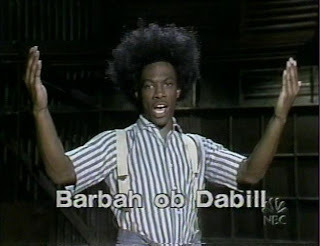
Origin: Solecism comes from Latin soloecismus, from Greek soloikizein, "to speak incorrectly," from soloikos, "speaking incorrectly," literally, "an inhabitant of Soloi," a city in ancient Cilicia where a dialect regarded as substandard was spoken.
1. A nonstandard usage or grammatical construction; also, a minor blunder in speech.
2. A breach of good manners or etiquette.
3. Any inconsistency, mistake, or impropriety.

Origin: Solecism comes from Latin soloecismus, from Greek soloikizein, "to speak incorrectly," from soloikos, "speaking incorrectly," literally, "an inhabitant of Soloi," a city in ancient Cilicia where a dialect regarded as substandard was spoken.
Published on June 13, 2011 07:10



